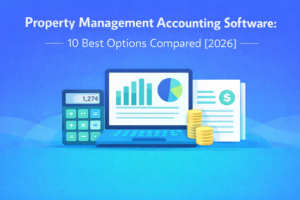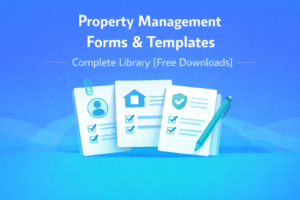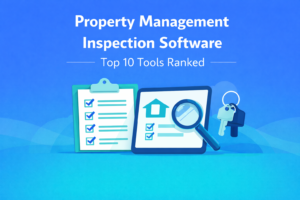
In today’s fast-paced real estate industry, technology is revolutionizing the way business is done, making processes smoother and boosting operational efficiency. One standout advancement shaking up the industry is real estate transaction management software. This game-changing tool goes beyond traditional transaction methods, offering a comprehensive digital solution that manages everything from start to finish.
The Basics of Transaction Management Software for Real Estate
Real estate transaction management software solutions are game-changers for the industry, simplifying the often intricate task of handling financial, legal, and other technical aspects of deals. These platforms offer a centralized hub where real estate pros can effortlessly manage documents, track deadlines, communicate with clients and stakeholders, and ensure full legal compliance. This essential tech not only boosts efficiency but also elevates the organization and accuracy of real estate transactions, making it an indispensable tool in any real estate professional’s toolkit.
How Software Aids Individuals in Real Estate Transaction Management
The significance of this software in the real estate sector is truly multifaceted! For agents and brokers, a real estate transaction coordinator means less time buried in paperwork and more opportunities for meaningful client interactions and crafting winning business strategies. For clients, it promises a smoother, more transparent transaction process with fewer uncertainties. And for transaction managers, it delivers powerful tools and features to streamline workflows and boost productivity.
What is Real Estate Transaction Management Software?
We’ll kick off our journey by diving into what real estate transaction management software truly is and the pivotal role it plays in the real estate industry. This section will unpack the core features of the software, from managing documents seamlessly to tracking transaction progress and enhancing communication among all parties involved in a real estate deal.
Choosing the Transaction Management Software for Your Real Estate Business
Choosing the right transaction management software can feel overwhelming, especially with so many options out there. But don’t worry, this part of the blog is here to help you find the perfect fit for your business! We’ll walk you through key factors to consider—like software features, ease of use, compatibility with other tools, pricing, and customer support—while sharing essential tips for testing and evaluating potential solutions. Let’s explore the options that you should consider while making a purchase for transaction management software.
Purpose and Functionality
Centralized Platform
Once installed, this software serves as the centralized hub for all transaction-related activities. It allows agents, brokers, and transaction coordinators to manage documents, track deadlines, communicate with clients, and coordinate with stakeholders.
Document Management
A key function of a digital real estate transaction manager is managing the numerous documents involved in real estate transactions, from contracts to compliance paperwork. Top software includes features for electronic signatures, document storage, and easy retrieval.
Task Tracking and Deadline Management
Real estate transactions involve many tasks and strict deadlines. Transaction management software tracks these tasks, sends reminders for important dates, and ensures nothing is missed.
Communication and Collaboration
Teamwork is essential in a brokerage. Real estate transaction management software facilitates communication among all parties involved. This can include integrated messaging systems, email platforms, and other collaboration tools.
Compliance Assurance
Due to the legal nature of real estate transactions, the best management software includes features to ensure compliance with local, state, and federal regulations.
Enhancing Efficiency and Accuracy
Real estate transaction management software enhances the efficiency and accuracy of the process, ensuring tasks are done quickly and meticulously. Automating routine tasks and providing a structured approach reduces the likelihood of errors. This efficiency saves time for professionals and enhances the client experience with a smoother, more transparent transaction process.
Testing and Assessing a Real Estate Transaction Management Software
Before diving into consistent usage, it’s crucial to thoroughly evaluate and test real estate transaction management software. Every professional should take essential steps to ensure it meets your specific business needs. To help you through this process, here are some practical tips:
1. Define Your Requirements
- List Your Needs: Before starting your evaluation, list the specific features you need from the software, such as document management, compliance tracking, and client communication tools.
- Prioritize Features: Identify which features are “must-haves” versus “nice-to-haves.” This will help you focus on software that meets your essential requirements while staying within budget.
2. Use Free Trials and Demos
- Hands-On Experience: Take advantage of free trials and demos offered by software providers. This hands-on experience is crucial for understanding how the software works in real-world scenarios.
- Test with Real Data: Use actual transaction scenarios from your business history to test the software’s capabilities. This helps you see how it will handle your specific processes and fit into your business.
3. Assess User Interface and Ease of Use
- Navigation and Usability: Focus on the user interface. Is it intuitive and easy to navigate, or confusing? Can you find features and tools quickly? These answers will guide important decisions.
- Onboarding Process: Evaluate the onboarding process. Is there a steep learning curve? Does the provider offer enough training materials or tutorials? Consider your patience for complex systems.
4. Check Integration and Compatibility
- Integration with Other Tools: Ensure the software integrates seamlessly with your CRM and MLS platforms for a more centralized system.
- Data Import and Export: Test the ease of importing and exporting data. Is the process simple and does it maintain data integrity?
5. Evaluate Mobile Accessibility
- Mobile App or Responsive Design: If you work on the go, check how the software performs on mobile devices. Is there a mobile app, or does it have a mobile-responsive design?
6. Investigate Security and Compliance Features
- Data Security Protocols: If not clearly stated in the marketing, ask about the software’s security measures. Does it use encryption and secure data storage to keep information safe?
- Compliance with Regulations: Ensure the software complies with industry regulations, including data privacy laws. If you operate in multiple areas, check for regional settings.
7. Gather Feedback and Reviews
- Seek Opinions from Peers: Take the time to communicate with other real estate professionals who have used the software. Their experience-based insights can be invaluable in understanding the pros and cons of a tool.
- Online Reviews and Forums: Read both positive and negative online reviews and participate in forums to get a broader perspective of the software’s performance and reliability.
8. Analyze Pricing and ROI
- Cost Analysis: Dive into your budget and scrutinize the pricing structure. Does it match the benefits and features provided? Is it a one-time purchase, subscription-based, or are there extra costs for updates?
- Return on Investment: Think about the potential ROI. Will this software save time, cut down on errors, and boost client satisfaction enough to increase your profits?
Conclusion
Choosing the right real estate transaction management software is pivotal for streamlining operations and enhancing productivity within a brokerage.
By thoroughly defining your requirements, rigorously testing features through free trials, and ensuring the software integrates well with your existing tools, you can make an informed decision that best fits your needs. Evaluating ease of use, mobile accessibility, security measures, and compliance are also critical steps in the selection process.
Gathering feedback from peers and analyzing pricing and potential ROI will further empower you to choose a software solution that not only simplifies transaction processes but also elevates client satisfaction.
Investing the time to assess and select the right management software will ultimately lead to more efficient and error-free transactions, making your brokerage more competitive and successful in the long run.
Table of Contents
Stay Updated
Subscribe to get the latest news, industry trends, blog posts, and updates...




